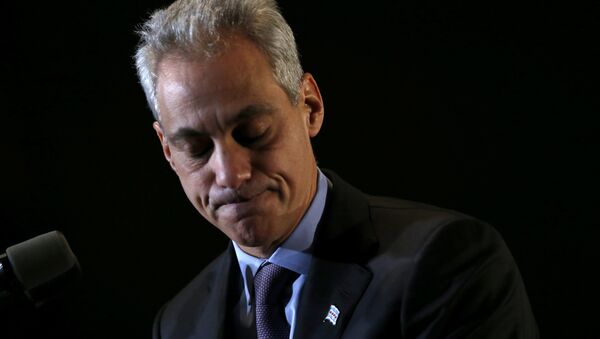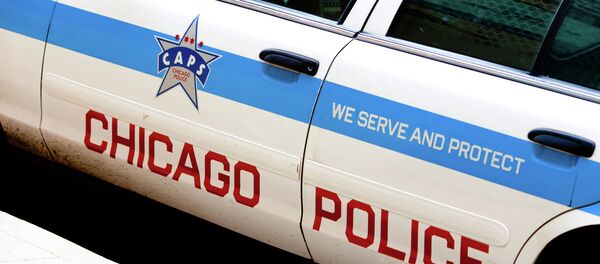Citing an American Civil Liberties Union report that showed black citizens in Chicago were subjected to 72% of all police stops, yet only constitute 32% of the city’s overall total population, a group of about 100 protesters called for the mayoral staff to meet with them over “stop and frisk” searches, of which the city currently holds a record higher than New York, according to Reuters.
— proleterrorist (@soit_goes) March 23, 2015
Demonstrators also seek to establish a citizen oversight committee to review police misconduct and reform the city’s pilot body camera program.
— JASC (@SeniorCaucus) March 24, 2015
Protester Charles Anderson, 37, agreed that police have a duty to fight crime, but believes in “different ways to do the same things.”
“They don’t have to throw him up against the car and take his pants down to see if he is carrying drugs,” Anderson said. “They don’t have to throw a numerous amount of young men against a fence to find out their names.”
— CommunityRenewalSoc (@CRSchicago) March 24, 2015
The ACLU’s Illinois chapter released a report on Monday condemning the more than 250,000 Chicago “stop and frisk” encounters between May and August 2014 that resulted in no arrests, of which African-Americans made up almost three quarters of those stopped.
— Rachael P (@plussone) March 23, 2015
Chicago police stopped 93.6 people for every 1,000 residents in the city — more than four times New York's peak rate of 22.9 stops per 1,000 residents during the same four-month period in 2011.
"The Chicago Police Department stops a shocking number of innocent people," said Harvey Grossman, the ACLU's legal director. "And just like New York, we see that African-Americans are singled out for these searches."
Chicago police have defended their tactics, and argue that the department has stepped up the measures its takes against racial profiling and other “bias based policing.” Officers cited that the racial breakdown of their records is not based on racial profiling but on the profiles of suspects identified by third parties.



